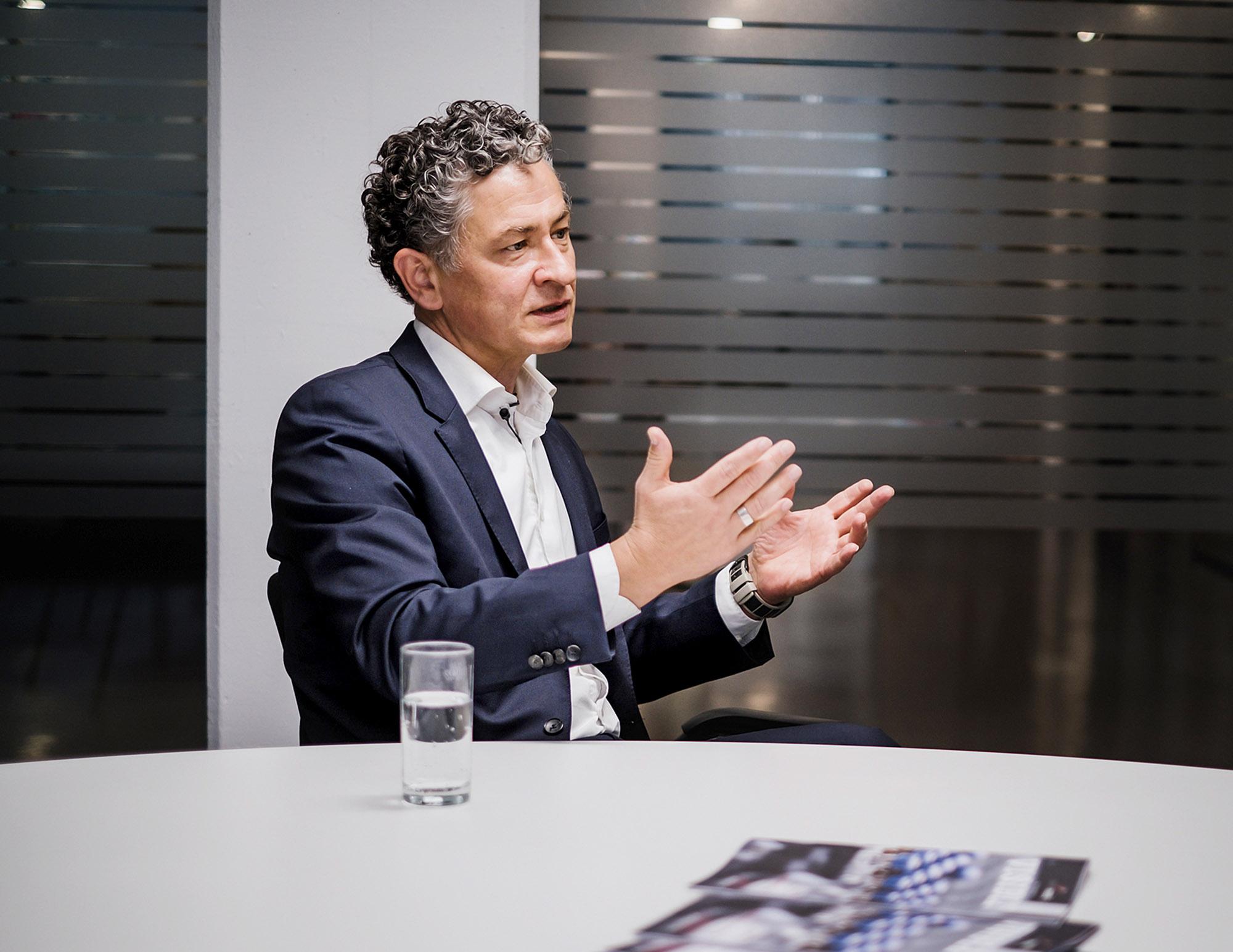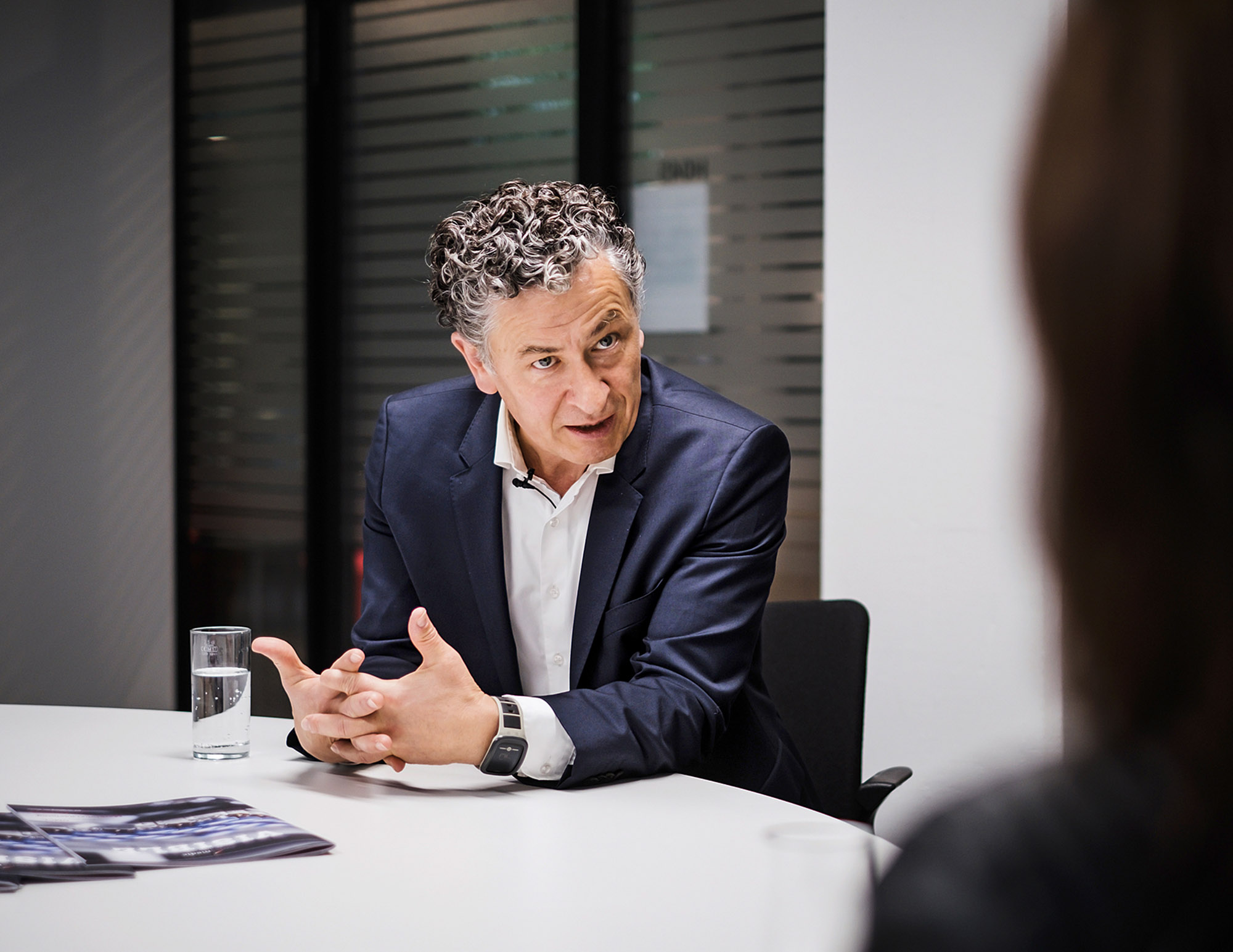As a former FDHA Secretary General, you are already familiar with Swissmedic. How did you perceive Swissmedic in your former role?
“I viewed Swissmedic as a highly competent, independent authority that does its job very effectively – an expert organisation, but one that competes to a certain extent with other regulatory authorities.
Swissmedic is an organisation that attracts highly skilled professionals and in which the staff are keen to be involved. However, the Agency needs to raise its profile in relation to other stakeholders and government bodies in the healthcare system and to better explain its remit. The aim is for Swissmedic to be involved at an early stage wherever it is affected by the operation of the law. Let me give you an example: participants in the legislative process need to think about Swissmedic and listen to its views on the practical implications of the law. There is still potential for optimisation in this area.”
What do you see as the strengths of Swissmedic?
“The reliability and quality of its work and, at the same time, the fast rate at which it processes authorisations compared to other regulatory authorities – we do what we promise, we are efficient. The Swissmedic personnel are another of our strengths. I have visited the various departments and everywhere been struck by the pride that the staff have in being able to work for Swissmedic. They are convinced that they are doing something important and useful. That is one reason why so many staff have been working at Swissmedic for years and why, at the same time, Swissmedic is able to recruit a constant stream of competent new employees.”
What do you see as the greatest challenges faced by Swissmedic?
“We could talk about that for hours. Apart from the current challenges posed by the pandemic, the main challenge, on the one hand, is definitely technological development, as this also affects therapeutic products – the convergence of medicines and medical devices, the new types of treatment and transplant products. In the field of medical devices, Swissmedic will be taking on new, additional tasks, but I believe that we are making good progress with our preparatory work here.
On the other hand, there is the challenge of the digital transformation. I have the impression that Swissmedic is also progressing well here compared to other federal agencies. The dialogue with companies that submit authorisation applications is very professional. The processes are constantly being improved and accelerated without jeopardising the attention to detail or scope of the review process. Speed and exchanging views are important. This also applies to the possible authorisation of a Covid vaccine, where the importance of "rolling submission" and entering into a dialogue with the applicant at an early stage is self-evident.
Another challenge is to recruit sufficient numbers of qualified and competent personnel – an important issue for the future. At Swissmedic we have departments in which 25 percent of the staff will be retiring in the next three to five years. We must act soon so that we are able to attract new, motivated and qualified personnel and experts. We will also be needing people with other skills: a lot of what we used to do manually will be automated in future. More interdisciplinary thinking is required. The new technological developments do not respect the responsibilities as we have defined them at Swissmedic. Keeping up to date and remaining competitive in relation to other regulatory authorities is a major challenge. We want to position Switzerland as the ideal place for authorisation applications, partly also to ensure that Switzerland is well supplied with therapeutic products.
And then we have the coronavirus pandemic, of course, which is a huge challenge. Authorising a vaccine is not the only challenge. A lot needs to be done within a very short period, medicines and clinical trials must be newly assessed and authorised, establishment licences need to be issued and market surveillance – in other words, monitoring the products that are already on the market – must be ensured.”
What can you as the Chair, or the Agency Council, do to help overcome these challenges?
“The Agency Council has a mandate that is clearly defined by law. We must fulfil this mandate usefully and effectively. The Agency Council should be a sparring partner for the Management Board, it should lead the dialogue with the Management Board about the upcoming challenges. That is a key task. We must jointly consider what the technological developments that affect Swissmedic will mean for the Agency in everyday practice – what they will mean for the revision of the strategic objectives of the Agency, and what we will need to modify in order to be equipped to face the future challenges. The Agency Council has an important role to play here as a generator of initiatives. And then there are the other legal tasks of course: the appointment of Management Board members, the dialogue with the key stakeholders so that we know what requirements will apply to Swissmedic – and so that we can then incorporate and, where possible, implement these requirements. Those are the various aspects that we cover, much like a private company's board of directors.”
“The Swissmedic personnel are another of our strengths.”
What do you see as the challenge that faces Swissmedic – as a medium-sized, efficient and professional authority – in remaining successful in the international arena.
“To retain its moderate size while still carrying out its legal mandate in all areas – properly, swiftly and effectively. Squaring that circle will be extremely difficult. I believe we’ve reached a crossroads here. For example, we will intensify coordination and consultation at the international level, take seriously the information and principles of equivalent foreign authorities, and seek and establish collaborations. Swissmedic needn’t necessarily do everything alone.
Some things also depend on developments connected with the institutional framework agreement. This is another challenge, and one that is not equally present everywhere in the public sphere.
The Switzerland-EU relationship affects our remit in respect of both medical devices and medicinal products. If we at Swissmedic, particularly in respect of market surveillance, were no longer able to access the databases of our European partners – specifically for medical devices – then we would have to set up our own organisation. That would be enormously expensive. And it's doubtful whether the high level of protection can still be guaranteed.
Swissmedic is an authority that authorises medicines. But numerous medical devices are also manufactured in, or imported into, Switzerland. This is where Swissmedic plays an important role in monitoring. For example, we ensure that the conformity assessment bodies operate correctly. The industry seeks dialogue with Swissmedic and values this contact. I want to work with the Director of Swissmedic to develop this aspect and institutionalise even more our dialogue with those associations that have an interest in our work – including with patient organisations, for example.”


